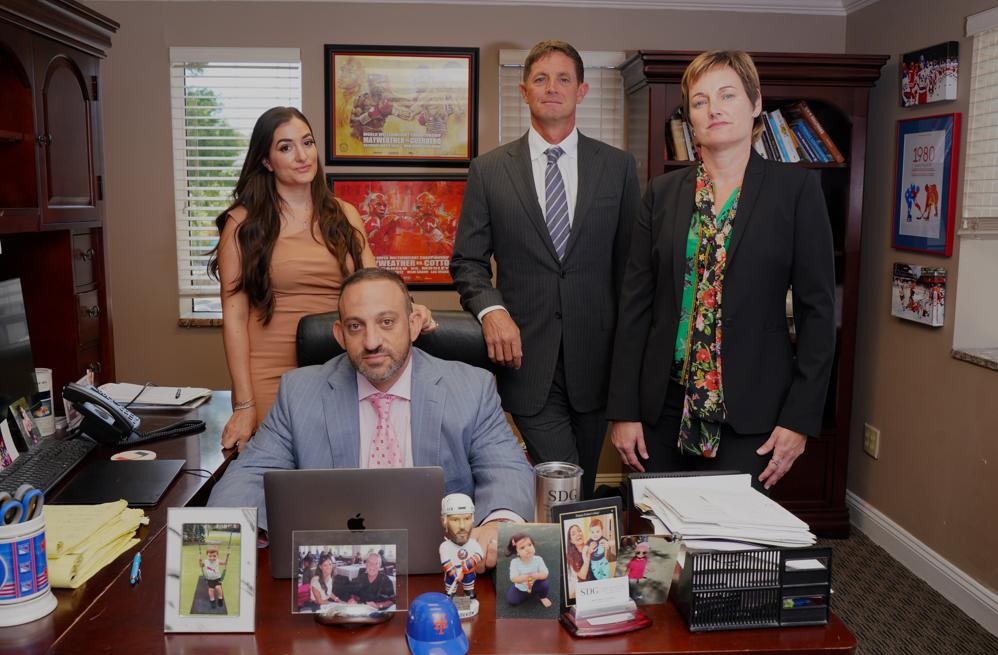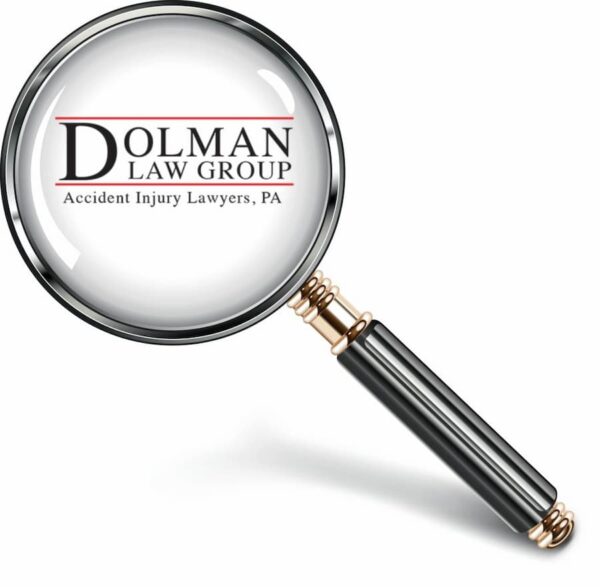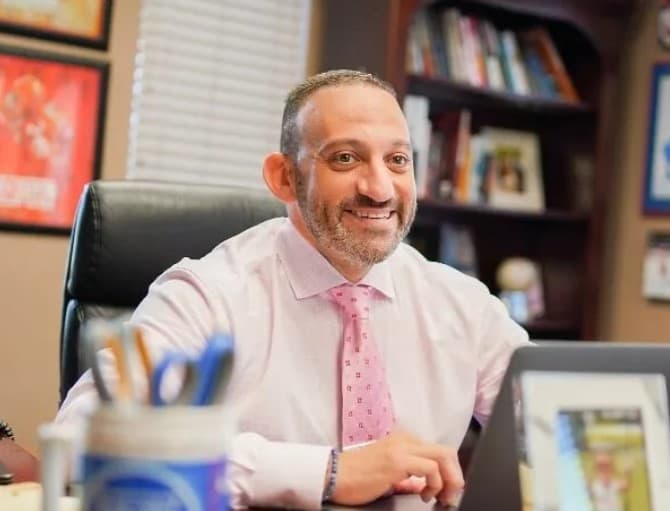If you are in a train or railway accident in Chicago, your life might be on hold for months or years, trying to heal from your injuries and get your life back on track.
You can deal with medical treatment, rehabilitation, and missed time from work. These accidents can be rare yet devastating when they happen, but a Chicago train accident lawyer can fight to get the justice you deserve.
Dolman Law Group Accident Injury Lawyers, PA, is here to assess your case and use our resources to pursue compensation for you and your family.
- Why You Need Dolman Law Group Accident Injury Lawyers, PAâs Chicago Train Accident Lawyers
- Commonality of Train Accidents in Chicago
- Causes of Train Accidents
- What Are Common Carrier Laws?
- Types of Train Accidents
- Potential Injuries From Train Accidents
- You Can Recover Compensation
- Who Pays for Your Injury Claim?
- You Must Consider the Statute of Limitations
- Steps You Can Take to Protect Your Claim
- Learn How Our Chicago Train Accident Lawyers Can Help
Why You Need Dolman Law Group Accident Injury Lawyers, PA’s Chicago Train Accident Lawyers

Dolman Law Group Accident Injury Lawyers, PA, has experience handling train accident cases involving government entities and other liable parties. These parties can be intimidating, and while you may assume they will do the right thing and cover your losses, that is rarely the case.
You need trusted professional representation from Dolman Law Group Accident Injury Lawyers.
After a train collision, you can expect our Chicago train accident attorney to:
- Conduct an independent investigation into your accident
- Gather and assess the investigation findings from the City of Chicago and relevant government agencies
- Work with mass transit specialists, rail specialists, and other professionals to help your case
- Obtain and review operation logs, witness statements, medical records, video footage, and trail maintenance
- Build a compelling case for compensation recovery
- Represent you in trial if your case gets to that point
Dolman Law Group Accident Injury Lawyers, PA, is conveniently located in Rolling Meadows near the Aloft Chicago Schaumburg and Woodfield Mall and a few miles northwest of O'Hare. Speak to our Chicago train accident attorney today.
Commonality of Train Accidents in Chicago
You may assume train accidents are rare, but Illinois ranks among the country's top states for such incidents. The Federal Railroad Administration reports over 175 train accidents annually, resulting in 40 deaths. Additionally, they lead to extensive financial losses and hardships. The state has 9,982 miles of tracks with 41 railroad companies in operation.
Some examples include:
- Burlington Northern Safety Fe
- CP Rail Systems
- Union Pacific Railroad
- Canadian National
- CSX Transportation, Inc
- Norfolk Southern Ry
- Elgin, Joliet, and Eastern Ry, Co
- Kansas City Southern Ry
BNSF and Union Pacific Railroad operate 7,792 miles of Class One railroads in the state, which are freight trains that often transport goods. Class two and three trains are smaller and often carry passengers, and the most well-known is the CTA L train, which hits 145 stations daily. Amtrak trains run from Union Station.
Causes of Train Accidents

One of the first steps we will take when we take on a client is assessing what happened to cause the accident. These causes can vary depending on whether it was an Amtrak, Metra, CTA, or other train.
Some common causes of train accidents in Chicago include:
- Operator errors include driving over the speed limit or failing to use the proper alarms at crossings. They may not see other pedestrians, cyclists, or vehicles. The underlying causes of driver negligence can be fatigue, inexperience, poor training, reckless behavior, or human error.
- Unprotected railroad crossings: the Federal Railroad Administration reported that 50 percent of 129,500 railroad crossings have automatic warning systems, whereas the other half do not. Railroad companies can be liable if a railroad crossing has a poor design.
- Lack of maintenance: trains and tracks experience general wear and tear from years or decades of use, leading to broken tracks and overgrown vegetation.
- An inspection violation occurs when the state or another agency inspects the train or track.
- Trip and fall hazards can happen near platforms or throughout the station. They can be loose cables, debris, or spilled liquids.
- Distractions are often seen in car accidents but can also apply to conductors and lead to devastation. Conductors may participate in distractions like talking to passengers or on the phone.
- A third-party driver who stops on the track can cause an accident.
- Faulty equipment can come in the form of worn-out brakes, tracks, couplings, switches, and broken wheels. These defects can prevent the train from stopping in time and cause a derailment.
Health and safety violations can also be factors in severe train accidents and can often lead to multiple passengers or bystanders suffering injuries. Train companies and other entities are legally responsible for fulfilling standards of care for passengers and anyone on their property.
If they do not, you must speak to a train accident lawyer in Chicago.
What Are Common Carrier Laws?
There are special designations for some vehicles as common carriers, and they will have different laws and liability issues that may apply.
Some examples of common carriers are buses, trams, and trains, and they are all commercial vehicles that transport passengers for a fee. Any vehicle or service that falls into this category has a higher standard of care for its passengers.
One of the additional standards common carriers have is maintaining and inspecting the trains. They should check for hidden dangers and hazards and are responsible for hiring and training employees. Under common carrier laws, companies must take reasonable steps to ensure the safety of all passengers.
If you are in an accident, common carrier laws allow you to file claims against any parties that are responsible for causing the collision, including the train company. Depending on your injuries and other losses, you can pursue varying compensation from these negligent parties. A Chicago train accident attorney can explain how common carrier laws apply to your case and build on that for your recovery.
Types of Train Accidents

Train accidents usually occur in two ways: a collision between two trains or a crash between a train and a motor vehicle. You have likely heard more about accidents involving two trains because of the devastation they cause. They involve numerous passengers on both trains, which can end up with hundreds of injured travelers.
When two trains collide, victims can sustain injuries outside the train, including innocent bystanders waiting for the train.
After a train collision, liability is challenging to determine since there can be several underlying situations to consider, such as:
- The controller directs the trains to each other
- The conductor not stopping at a signal
- Switching problems that make the trains end up on the same track
A single train accident is also possible if there is a defect on the train line.
The other type of train accident is when a train and a car collide, which most commonly happens at train crossings. Specific signals and gates are in place to prevent accidents, yet even with these measures, malfunctions are possible.
If a gate or signal mechanism malfunctions, a car can enter the tracks as a train approaches, causing a serious accident. These crashes typically result in death or permanent impairment.
Sometimes, the train conductor will brake to avoid an accident but will derail the train or cause passengers to fly about the cabin.
As you may imagine, these accidents are convoluted, with so many people involved and trying to get compensation for their injuries. Additionally, the Federal Employees Liability Act has some protections for train employees. Dolman Law Group Accident Injury Lawyers, PA, has the resources and experience to handle these accidents.
Potential Injuries From Train Accidents
People are in danger when the Chicago Transit Authority, Amtrak, or Metra fail their duties and can suffer severe injuries from these accidents.
Some common train accident injuries include:
- Neck and back injuries
- Traumatic brain injuries
- Burns
- Multiple broken bones or fractures
- Lacerations
- Bruises
- Spinal cord trauma
- Amputation
- Loss of function
These injuries are often life-altering and result in a slew of medical treatments. While you may recover within a few weeks or months, other injuries can have a lasting impact.
Even if you recover physically, you may have emotional or mental trauma that stays with you. You must document and request payment for all of these losses.
You Can Recover Compensation

Our Chicago train accident attorneys will assess your injuries and losses to determine your compensation amount.
Payment will vary, but it often involves coverage for:
- Pain and suffering
- Medical expenses
- Disfigurement
- Loss of normal life
- Lost income and benefits
Our Chicago train accident attorneys will calculate your current and future losses and pursue payment from the insurance company.
We will tabulate your losses by:
- Gathering your invoices, receipts, and bills related to your accident
- Speaking to professionals like economists
- Assessing the overall impact of the case on your life
- Reviewing cases similar to yours as a reference
Once the total is determined, it aids in advocating for our recovery, and we will negotiate until we get fair compensation for these expenses. Often, the long-term impact of a train accident requires extensive medical treatments and lifestyle changes. You need a settlement that reflects that.
Who Pays for Your Injury Claim?
Federal, state, and local laws can apply to a railway accident that can substantially complicate your injury case. A Chicago train accident lawyer will investigate the circumstances of the collision and determine who is responsible for paying your injury claim.
Some of the parties who can be responsible for paying your losses include:
- Conductor
- Engineer
- Rail company
- Locomotive designer
- Railcar manufacturer
- Train operator
Depending on who owns the train, federal government agencies can be involved. An injured railroad worker will have a different process and other responsible parties. Let our Chicago train accident attorney determine who pays for your injuries.
You Must Consider the Statute of Limitations

Train accidents are traumatic experiences, and it is understandable to take some time to process the event. However, you should also consider the deadlines for taking legal action.
Illinois gives victims two years to file a claim. A government entity's involvement can alter the deadline and will usually shorten it. Railroad workers may also have additional options and regulations they should follow. When you speak to a train accident attorney in Chicago, we will assess your circumstances and relevant deadlines.
Steps You Can Take to Protect Your Claim
Taking the right steps following the incident is crucial for your well-being and potential legal action.
Here are some tips on what to do after a train accident in Chicago:
- Seek Medical Attention: Your health is the top priority. Even if you believe your injuries are minor, it's essential to seek medical attention promptly. Some injuries may not manifest symptoms immediately, and a medical professional can assess and document your condition.
- Do Not Admit Fault: Refrain from making statements that may be interpreted as admitting fault. Stick to providing factual information to law enforcement and emergency responders.
- Preserve Evidence: If you can, preserve any evidence related to the accident. This may include taking photos, keeping damaged clothing or personal items, and documenting your injuries.
- Consult an Attorney: Reach out to an experienced personal injury attorney, such as those at Dolman Law Group. A skilled attorney can assess the circumstances of the accident, guide you on the next steps, and help preserve evidence critical to your potential case.
- Follow Medical Advice: Adhere to the medical treatment plan prescribed by healthcare professionals. This not only promotes your recovery but also establishes a documented record of your injuries.
- Document Expenses: Keep a record of all medical expenses, including bills, prescriptions, and other costs related to your recovery. This documentation will be crucial when seeking compensation.
Remember that every train accident case is unique, and seeking legal guidance is essential to navigate the complexities of the legal process. Dolman Law Group's experienced attorneys can provide the support and advocacy needed to pursue compensation for your injuries and losses after a train accident in Chicago.
Learn How Our Chicago Train Accident Lawyers Can Help
Speaking to Dolman Law Group Accident Injury Lawyers, PA, is the best way to protect yourself and determine what to do next.
Get a free consultation with our Chicago personal injury attorneys today at (312) 500-2901. We are ready to assess your rights and begin fighting for the full compensation you deserve.